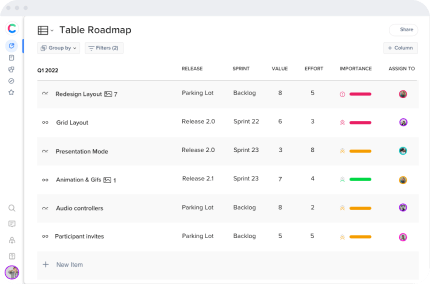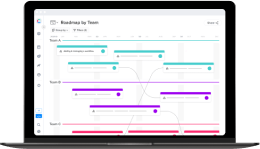Business intelligence
Business intelligence (BI) is a technology-driven process for evaluating data and delivering actionable information to leaders, managers, and employees to help them make better business decisions. Organizations collect data from internal and external IT systems, prepare it for analysis, run queries against it, and create data visualizations and reports. These reports then make the analytics results available to business users for operational decision-making and strategic planning as part of the BI process.
The ultimate purpose of business intelligence efforts is to help firms make better business decisions that will help them raise revenue, improve operational efficiency, and gain a competitive advantage over their competitors. To do this, BI uses a combination of analytics, data management, reporting tools, and diverse data management and analysis approaches.
Importance of BI
Business intelligence uses relevant data to improve an organization’s business operations.
Companies that use BI tools and approaches efficiently can turn their acquired data into useful information about their business processes and procedures. You can then use such data to make better company decisions that boost productivity and revenue, resulting in faster growth and more significant profits.
Organizations can’t easily benefit from data-driven decision-making without BI. Hence, executives and workers must rely on other criteria such as collected knowledge, prior experiences, intuition, and gut feelings to make critical business decisions. While those procedures can lead to intelligent conclusions, they’re also prone to errors and blunders due to the absence of measurable facts.
Business Intelligence’s Advantages
A successful BI program brings a slew of business benefits to a company. For example, BI allows administrators and department managers to continuously monitor business performance to respond promptly to challenges or opportunities.
Customer data analysis aids based on BI enable improvement of marketing, sales, and customer support efforts. You can quickly identify bottlenecks in the supply chain, manufacturing, and distribution. Additionally, HR managers can better track employee productivity, labor costs, and other workforce statistics.
BI initiatives also provide more specific business benefits, such as making it easier for project managers to track the status of business projects and for businesses to acquire competitive intelligence on their competitors. Business intelligence also benefits BI, data management, and IT teams, who use it to assess different technology and analytics operations elements.
Other significant advantages of BI software for enterprises include the capacity to:
– Accelerate and improve decision-making optimize internal company processes
– Boost operational efficiency and productivity – Identify and solve business challenges and discover the upcoming industry and business trends
– Establish more robust business strategies, increase sales and new revenue, and get a competitive advantage over competitors.
Business Intelligence Vs. Business Analytics
Business intelligence and business analytics are sometimes used interchangeably. In some circumstances, “business analytics” refers to advanced analytics or, more broadly, covers business intelligence. Meanwhile, data analytics is a broad phrase related to all types of business intelligence and analytics software. Data analytics includes three primary types of data analysis:
● Descriptive analytics, which BI often provides.
● Predictive analytics, which predicts future behavior and consequences.
● Prescriptive analytics, which suggests business actions.


